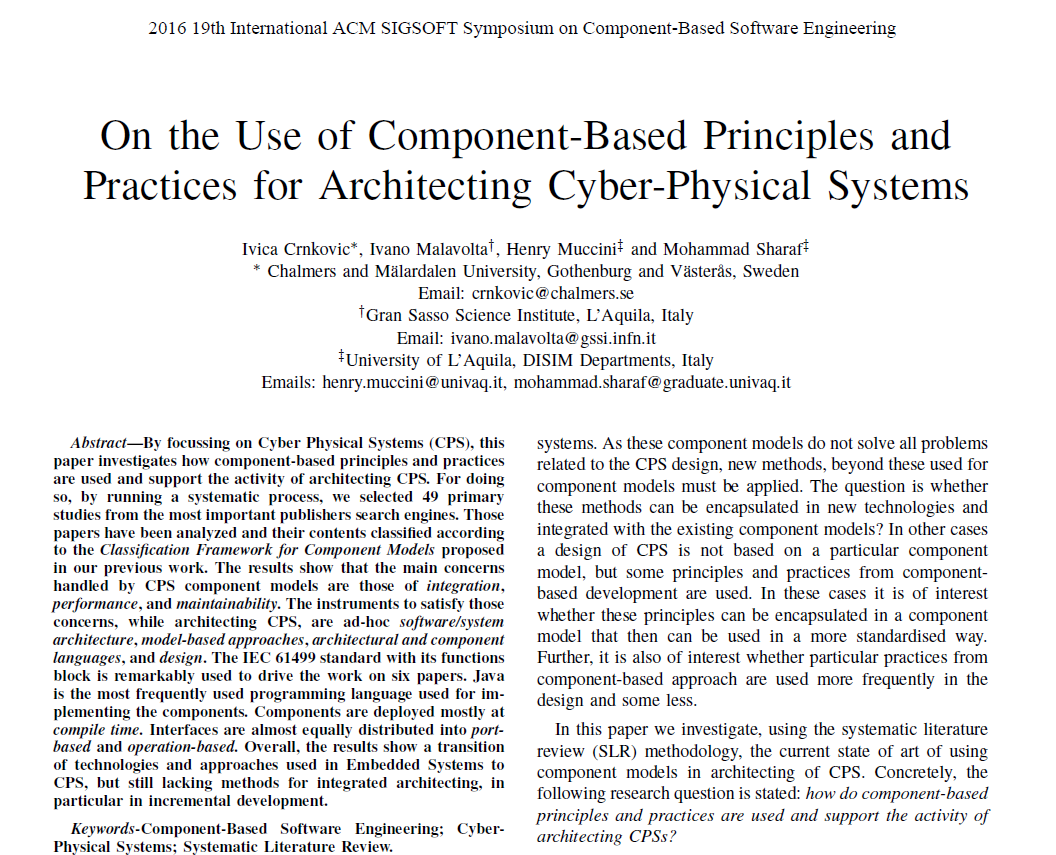Abstract—By focussing on Cyber Physical Systems (CPS), this
paper investigates how component-based principles and practices
are used and support the activity of architecting CPS. For doing
so, by running a systematic process, we selected 49 primary
studies from the most important publishers search engines. Those
papers have been analyzed and their contents classified according
to the Classification Framework for Component Models proposed
in our previous work. The results show that the main concerns
handled by CPS component models are those of integration,
performance, and maintainability. The instruments to satisfy those
concerns, while architecting CPS, are ad-hoc software/system
architecture, model-based approaches, architectural and component
languages, and design. The IEC 61499 standard with its functions
block is remarkably used to drive the work on six papers. Java
is the most frequently used programming language used for implementing
the components. Components are deployed mostly at
compile time. Interfaces are almost equally distributed into portbased
and operation-based. Overall, the results show a transition
of technologies and approaches used in Embedded Systems to
CPS, but still lacking methods for integrated architecting, in
particular in incremental development.
Keywords-Component-Based Software Engineering; Cyber-
Physical Systems; Systematic Literature Review.
List


